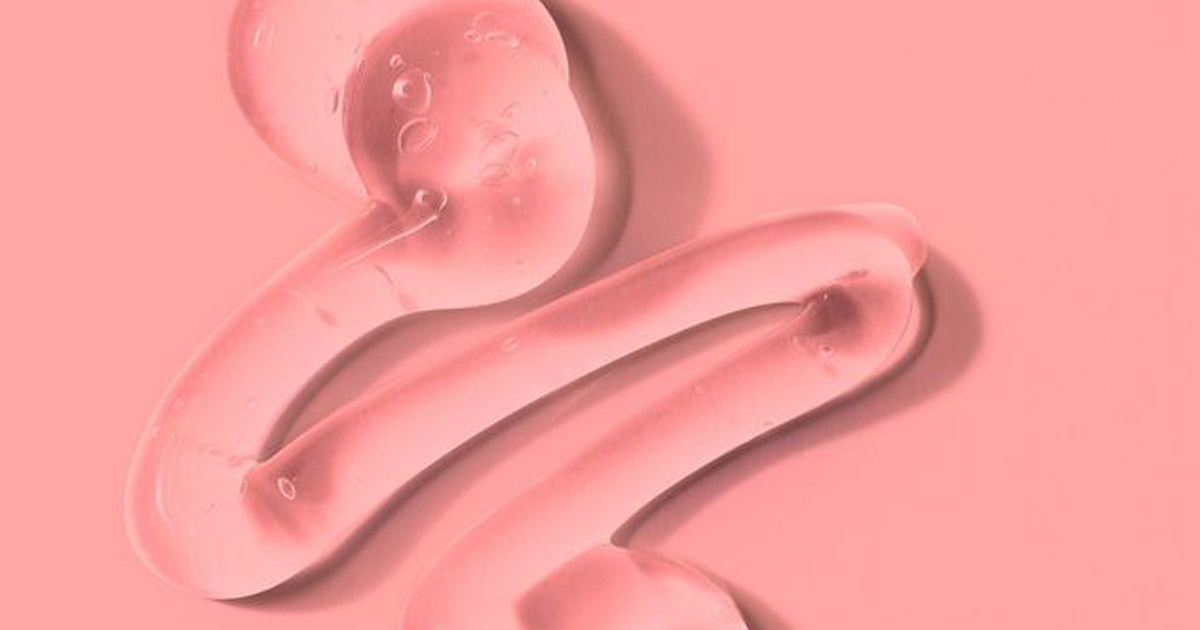The vagina, during stimulation and arousal, will sometimes produce its own lubrication. However, there are many things that impact that natural production of vaginal lubricant. When this occurs, lubricants can be a wonderful tool to enhance both partnered and solo sexual activities.
Before we get down to business, I want to make one thing clear:
LUBE IS FOR EVERYONE. There is absolutely nothing wrong with using lubricants. There is nothing wrong with you or your body.
Imagine you're in your backyard in the summertime. The sprinkler is going, and you're preparing to lunge down the slip and slide. As your body hits the slide, you move down it slowly, stopping before the end with a bit of slide burn on your stomach. Now imagine you've added a little dish soap to the mix. As you rush down the slide, you're moving so fast, that you're launched into the neighbor's yard!
Less friction, more fun. That's what lubricants can do for you! I would advise against launching yourself into the neighbor's yard—they might not find it as enjoyable.
With so many options to choose from, choosing the right lubricant for you can be difficult. Types of lubricants are broken down into three different categories:
- WATER BASED. An all-purpose lubricant that can be used with all condoms and all types of toys. Easy to clean, however can dry out quickly and require frequent application. Can be reactivated with a couple drops of water.
- SILICONE BASED. More slippery than water-based lubricants and lasts longer. This type is slightly more expensive, but less is needed with each encounter, so it lasts longer. It can also be harder to clean, as it doesn't break down easily in water. Should not be used with silicone toys, but is safe for condoms.
- OIL BASED. Oils can breakdown latex and polyisoprene condoms. It can also leave a coating in the vagina or rectum that traps bacteria and may lead to infections. Works best in water and is a good natural alternative for individuals who are sensitive to the ingredients in water and silicone-based lubricants. May also be easier to come by for some, since many have oils such as coconut oil in their homes already. Some oil-based lubes are nut oil-based, so it's important to check ingredients if you have an allergy or sensitivity.
Many lubricants also include ingredients that may cause irritation. Some ingredients to look out for include:
- Chlorhexidine: Bactericidal preservative. Found to significantly reduce Lactobacilli, the protective bacteria in women's vaginas.
- Nonoxynol-9: Spermicide that has been found to increase transmission of HIV and a known irritant.
- Glycerin: A sugar alcohol used as a preservative found in many lubricants, may be related to cell toxicity. Also potentially linked to yeast infections.
- Propylene glycol. Slightly sweet tasting preservative found in many lubricants, may be related to cell toxicity.
- Parabens. A weak estrogen. No studies have shown strong link with cancer, but may be concerning to some women. May cause irritation.
- Petroleum. Breaks down latex condoms. May be linked to bacterial infections.
- EDTA. Preservative found to disrupt tissue membrane.
- Menthol. Alcohol used to create "tingling sensation".
- Capsaicin. Oil of hot peppers, used to "increase arousal."
- L-Arginine: Could induce a Herpes outbreak.
- Herbal extracts: Can be an irritant to some women.
- Almond oil: Nut allergy warning.
There's a difference between vaginal lubricants and moisturizers. Vaginal moisturizers are used to provide long-lasting relief and comfort for women experiencing daily vaginal dryness. Dryness can be caused by vaginal atrophy and a thinning and inflammation of the vaginal walls. This can be caused by hormone fluctuations, as a result of the natural aging process, menopause, cancer, pregnancy, childbirth, and breastfeeding. Lubricants are used for shorter periods of time to enhance sexual experiences. Synthetic lubes such as Uberlube, are also great for other types of chafing, like thigh rub. So, it can also enhance your summer walking or running experience, too!
Now that you're empowered with all of this new lube knowledge, go grease up your slip and slide! But don't use actual grease. Crisco is not a safe lubricant. It's oil-based, increases infection potential and—if your family is like mine—is full of leftover bacon grizzle and other sorted particulates. You don't want that in your vagina.
Written by Nicholette Driggs, Coordinator, Marketing & Community Outreach, Grand Rapids OB/GYN and the Center for Women's Sexual Health.




